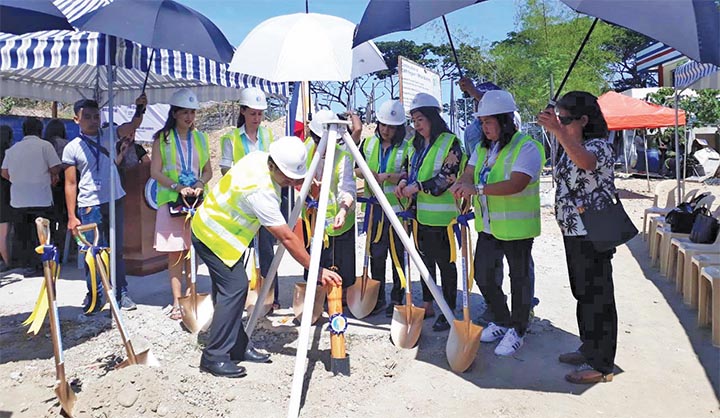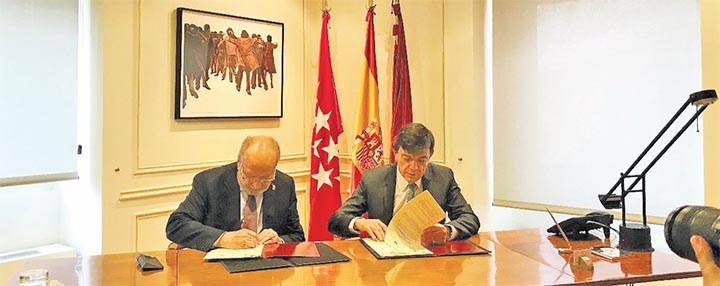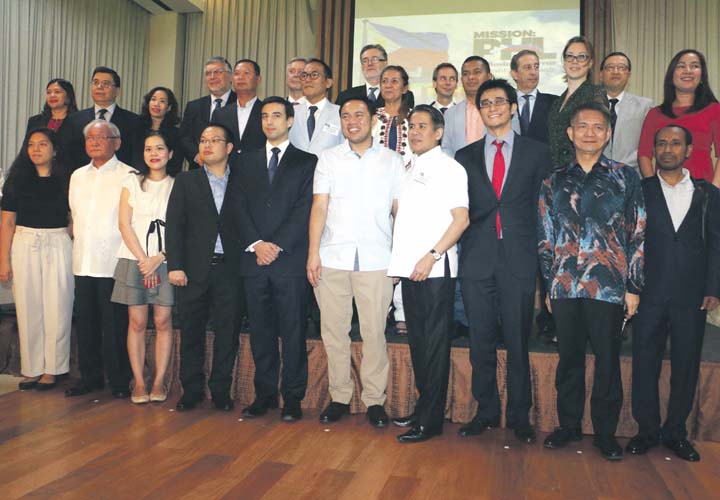Being a former colony, it was natural for the Philippines to have strong diplomatic and economic ties with Spain.
The Philippines was under Spanish rule for 333 years. Through colonization, the country was able to learn and imbibe Spanish and Mexican culture. Many Filipino words have Spanish or Mexican origin and many of the country’s local dishes were also inherited from Spain and Mexico.

In 2012, the Philippines extended a $1-billion loan for the Financial Transactions Plan (FTP) of the International Monetary Fund. The facility, at that time, benefitted debt-stricken European countries, including Spain. The Philippines did this despite its development challenges and in the spirit of international cooperation.
The amount may not have been significant but it helped boost the country’s diplomatic ties and economic ties with European countries, including Spain.
Data from the Department of Trade and Industry (DTI) showed that Philippine exports to Spain jumped by 189 percent to $252.7 million in 2017, from $87.3 million in 2006.

Helping Spain get back on its feet in 2012 was also a means by which the Philippines could give back for all the assistance it has received from the Spanish government.
Spanish ODA
Spain has been actively involved in helping the country address its development constraints. That has been the main thrust of the Spanish Cooperation for over 20 years.
From 2001 to 2012, Official Development Aid (ODA) for the Philippines reached a total of 245 million euros, of which 25 million euros have been directed towards humanitarian aid between the years 2006 and 2012.
The areas of cooperation in those years saw the Spanish government extending help to promote economic growth for the extreme poor, governance, and environmental sustainability, particularly the impact of climate change on habitats.
In the 2014-2017 Country Partnership Framework (CPF) for Development Cooperation, the Spanish government extended 50 million euros in aid to the Philippines. This is on top of the humanitarian aid provided to the country whenever the situation requires it.
The cooperation focused on financing projects that are under cross-cutting priorities such as social inclusion and the fight against poverty; gender development; promotion of human rights and democratic governance; environmental sustainability; and respect for cultural diversity.
“The quality of dialogue between the government, civil society and the Spanish Aid in the Philippines is very fluid and based on trust. The different mechanisms and harmonization forums allow for an effective exchange of technical information under the leadership of the member country,” the CPF read.
Grant projects
As of 2017, data from the National Economic and Development Authority (Neda) showed that the Philippines has not received any loans from the Spanish government. Most of Spain’s projects in the country are financed by grants.
As of December 2017, grant projects from Spain amounted to $10.99 million.
The total ODA received by the country from Spain as of December 2017 was $14.34 billion.
Neda data showed the Spanish government has seven ongoing grant projects in the Philippines amounting to $9.18 million. Four of these projects are in Governance and Institutions Development while three are in Social Reform and Community Development.
The four projects in Governance and Institutions Development amount to $7.83 million. The largest of these projects is the $4.48-million Project Go-Just Human Rights with the Commission on Human Rights (CHR).
“The project contributes to broadening of the scope of CHR and enabled its development at the national level, as well as the creation of national capacities to face an extended mandate,” according to documents from the European Union and Spanish Agency for International Development Cooperation (AECID). It also covers the operationalization of a National Prevention Mechanism against Torture,”
It aims to strengthen the Justice System Coordinating Council and support its efforts in developing a sector reform agenda and its constituting elements.
The project seeks to help decongest selected courts, streamline case management processes and promote the modern concept of electronic Courts or e-courts, as well as reinforce the administrative and financial management capacity, and support the efforts of independent constitutional bodies.
It also aims to help civil society exercise oversight and demand accountability from the justice system with a particular focus on major human rights violations.
The Spanish government is separately funding the same program being implemented specifically for the Autonomous Region in Muslim Mindanao (ARMM), costing $0.7 million.
The three projects are under the Social Reform and Community Development and cost $1.35 million. The largest project is the Inclusive Development for All: Consolidating the Benefits of Peace in Communities Affected by Armed Conflicts, which costs $590,000.
The project is being implemented in support of the country’s peace initiatives through the Office of the Presidential Adviser for the Peace Process (OPAPP).
“In support of the country’s peace initiatives, the AECID launched in 2011 a multi-year project with the Office of the Presidential Adviser for the Peace Process (OPAPP), entitled Peacebuilding and Development in Local Government Units in the Philippines, finalized in June 2016. The project supported the Philippine government’s PAMANA initiative: Resilient Communities in Conflict Affected Areas,” the AECID stated in a recent statement.
“In a second phase of this long intervention in support of the OPAPP strategy, a new project is being implemented: Inclusive Development for All. Consolidating the benefits of peace in communities affected by the armed conflicts of the Philippines,” it added.
Indeed, Spain is one of the strong bilateral development partners of the Philippines. One can only expect that the good relations between the two countries, forged in the crucible of history and the continuing robust interactions between their peoples, will continue in the years to come.































